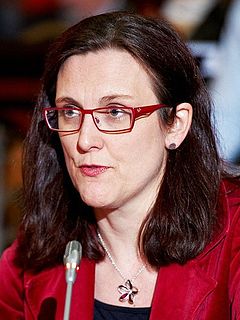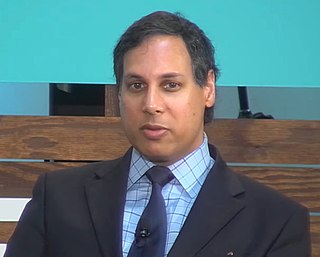A Quote by Cecilia Malmstrom
I actually do not believe that Trump is anti-trade as such. He himself was a life-long trader in his own area, the real estate sector. And hasn't he just closed an arms deal with the Saudis valuing over $100 billion? The difference is that Trump sees trade as something with a winner and a loser. This seems to be a theme of his, and that makes us different. For us, trade is something where both sides win.
Related Quotes
We're at the start of the process of talking about a trade deal. We're both very clear that we want a trade deal. It will be in the interests of the UK from my point of view, that's what I'm going to be taking in, into the trade discussions that take place in due course. Obviously [Donald Trump] will have the interests of the US. I believe we can come to an agreement that is in the interests of both.
[Donald Trump] is talking a lot about redoing trade and that's the area that is getting globalists nervous. Number one, they want certainty. They do not want to see a disruption in trade. He's promising to rip up NAFTA, redo NAFTA. He's not going to do the Trans-Pacific Partnership, the TPP trade with Asia.
This rhetoric that Donald Trump is used is very consistent with rhetoric he's used on the campaign trail for a long time now. He'll always say - and you look - you can look at the past transcripts of his old speeches. He'll always say, I'm in favor of trade; trade is great, but these deals - NAFTA, TPP, the South Korean Free Trade Agreement - are all terrible.
The far more likely Trump scenario is this: Chinese leaders realize they no longer have a weak leader in the White House; China ceases its unfair trade practices. America's massive trade deficit with China comes peacefully and prosperously back into balance, and both the U.S. and Chinese economies benefit from trade.
Donald Trump talks to a lot of people. That doesn't change his ultimate views. If you go back on YouTube and you look at Donald Trump talking about trade in the 1980s, in the 1990s, this is the same person today. He's no different. So, while a lot of people like to talk and argue about who's talking to President Trump and who's influencing him to make decisions, it's Donald Trump. It's his agenda. It's always been his agenda. And it always will be his agenda.





























